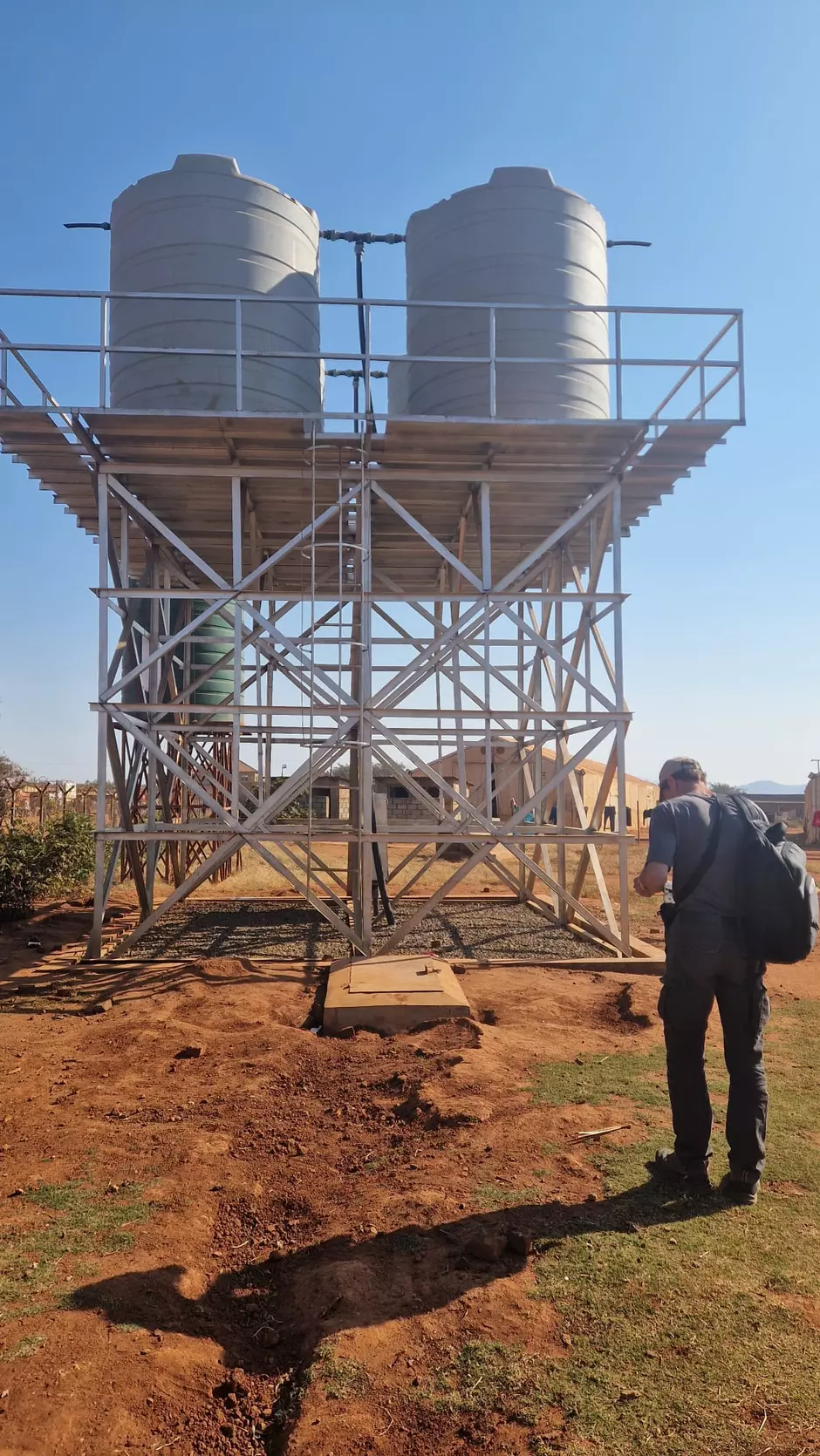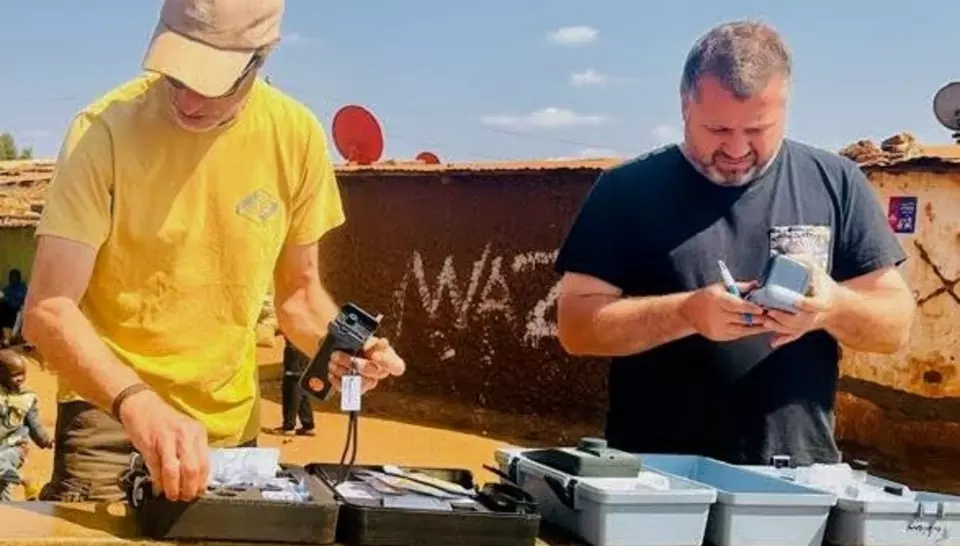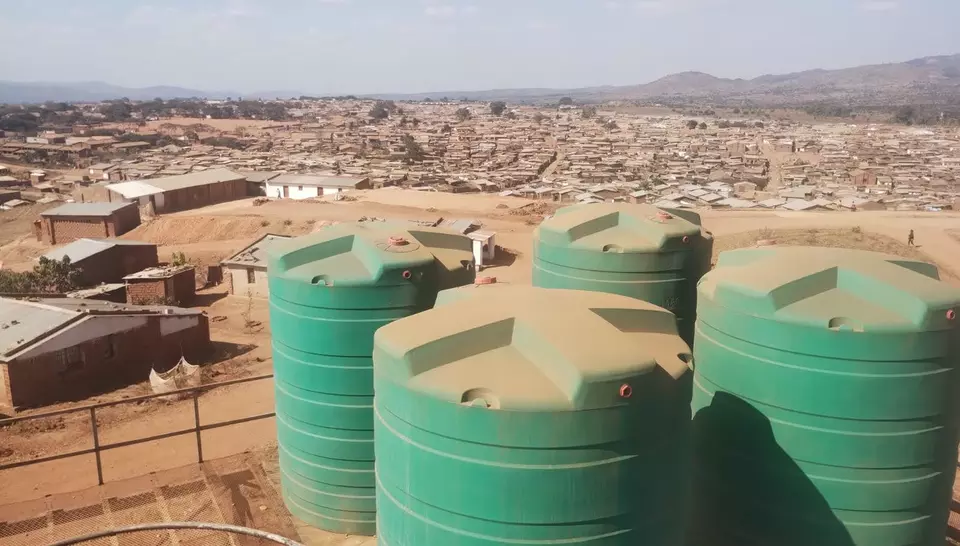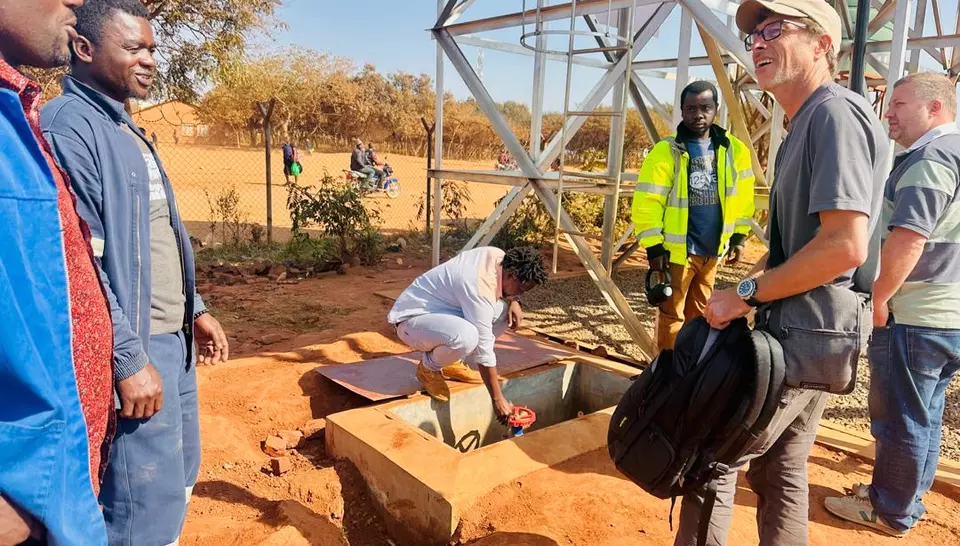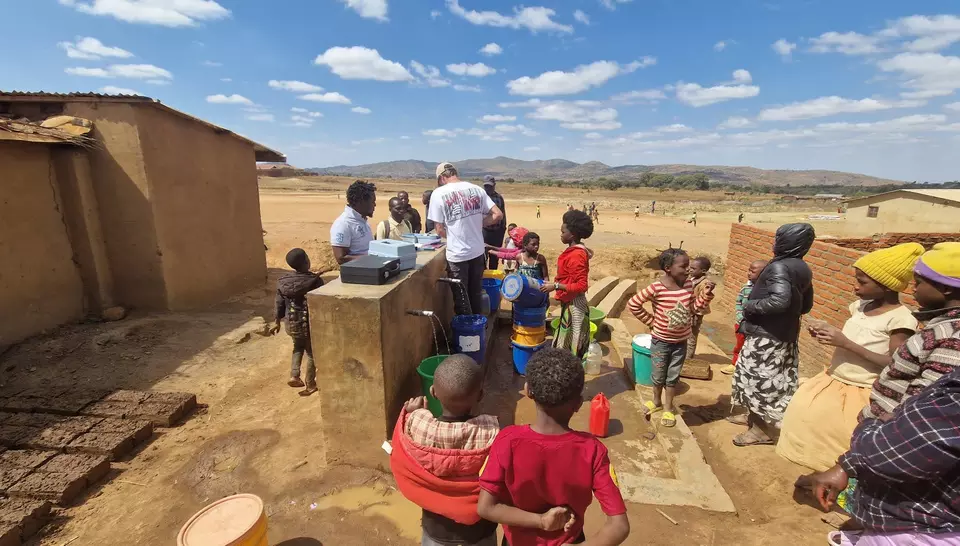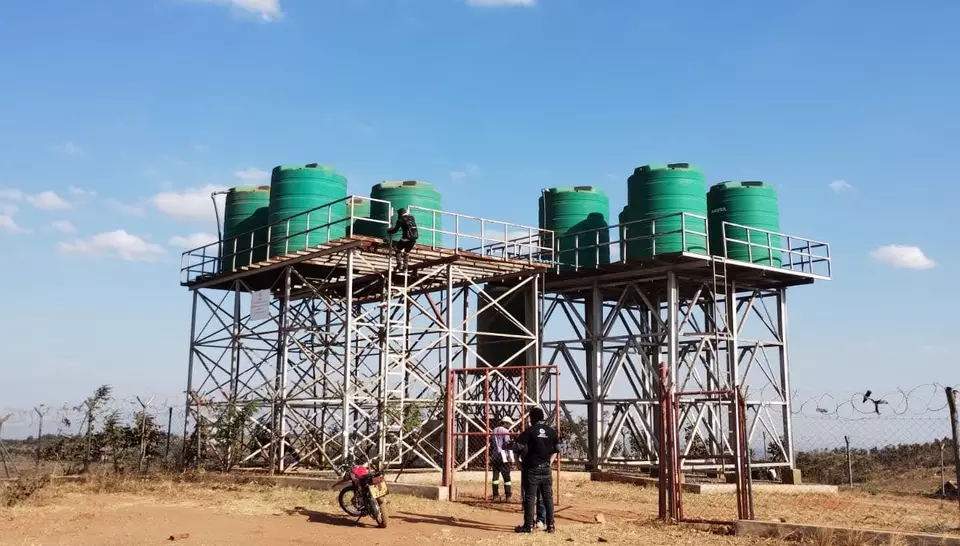From July 15 to 26, 2025, Emmanuel Corbel (Seureca) and Guy de Sainte-Claire (Veolia Water) conducted an audit of the drinking water infrastructure in the Dzaleka refugee camp in Malawi, as part of the partnership between the Veolia Foundation and the UNHCR. However, this mission began well before their departure.
In the heart of Malawi, the Dzaleka camp is home to nearly 60,000 refugees from Congo, Burundi, Rwanda, and Ethiopia. “It has become almost like a city, with people coming and going, and children who were born and raised there,” says Emmanuel Corbel, a Veoliaforce volunteer who was sent there at the beginning of the summer.
When the UNHCR, the United Nations High Commissioner for Refugees, approached the Veolia Foundation at the end of 2024, the issue at stake was optimizing the water networks built in the camp. Emmanuel Corbel took advantage of a trip to the country on another matter to go and see the infrastructure. “Everything seemed to point to an issue of water availability in the camp, and therefore more to do with production,” he recalls.
A team to document the mission upstream
Based on the initial data reported, the Veolia Foundation called on Guy de Sainte-Claire, again on a skills sponsorship basis. An experienced Veoliaforce volunteer, this network expert undertook a patient and meticulous investigation and analysis. “I applied my usual working method,” he explains, “reviewing all the available documentation on the camp to explain the flow problem encountered. Based on the available data and the report produced by Emmanuel after his visit, I put forward a number of hypotheses.”
In conjunction with the Veolia Foundation, the two volunteers interviewed UNHCR operators and found the name of an engineer involved in the construction of the infrastructure. Answers poured in and new hypotheses emerged. Guy de Sainte Claire gradually built up a network of experts around the case. “On subjects I wasn't familiar with, I was lucky to be able to get help from colleagues, who are always very available when it comes to the Foundation. The hydraulic expert, the drilling expert in my region, the team's cartographer... It's a real strength to be able to draw on such a chain of expertise.”
Two weeks crisscrossing the camp
At the end of spring, the mission took shape, with a work plan carefully drawn up in advance by the two volunteers. “We had 15 days on site to measure production rates, reservoir filling times, identify and analyze pumping problems, etc.,” explains Emmanuel Corbel.
The goal was to validate or refute hypotheses, sometimes to come up with new ones, with the requirement to find answers. “We continued to rely on our colleagues remotely. You can't imagine how valuable it is, when you're a little lost, to receive an email from a colleague confirming your intuition and validating a technical setup,” says Guy de Sainte Claire.
The days are busy: the two volunteers map the infrastructure (GIS) and establish the camp's hydraulic model. “Two tools that are essential both for our mission and for the future,” adds Guy de Sainte Claire.
Before leaving, the two engineers gave a debriefing to their contacts in charge of water at the camp. “Our goal was to provide a practical guide to the actions to be prioritized, with their degree of criticality, expected impact, and associated budget,” explains Emmanuel Corbel. “These range from securing a solar borehole to the electricity grid to installing a pipe with a suitable diameter and fitting suction cups at the highest point.”
Back from Malawi, the conclusion is clear: “More than half of the mission takes place upstream,” say the two volunteers. “We don't always have the opportunity to collect so much data before traveling, but when we do, the expertise provided to the partner is multiplied,” concludes Damien Machuel, head of operations at the Veolia Foundation.
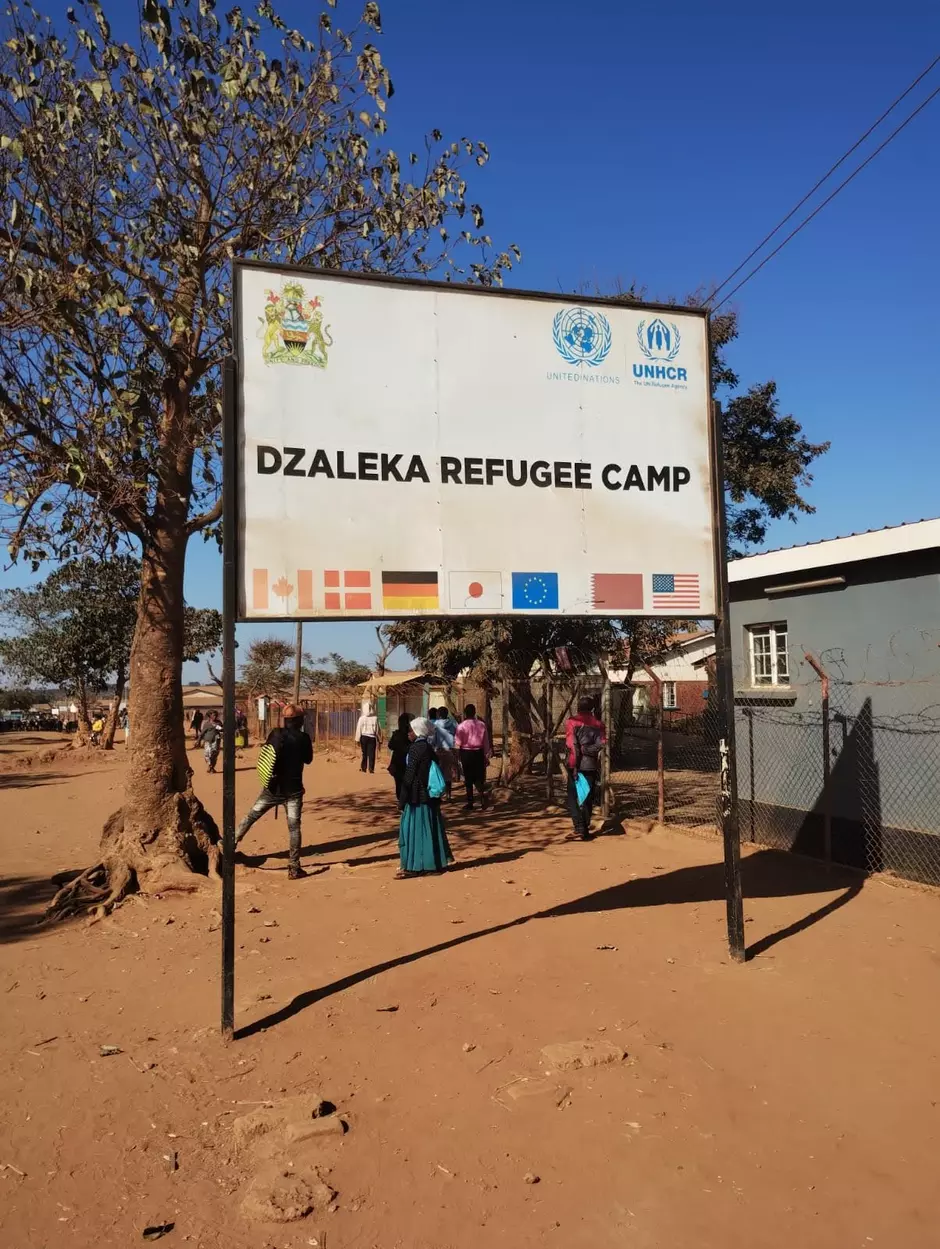
A partnership between UNHCR and the Veolia Foundation
The mission is part of the partnership between UNHCR and the Veolia Foundation. As a Stand-By Partner of the UN agency, the Foundation is committed to supporting it on the issue of access to water. For example, it has worked alongside UNHCR in Chad, near Farchana, where a dozen camps are home to several hundred thousand people.
